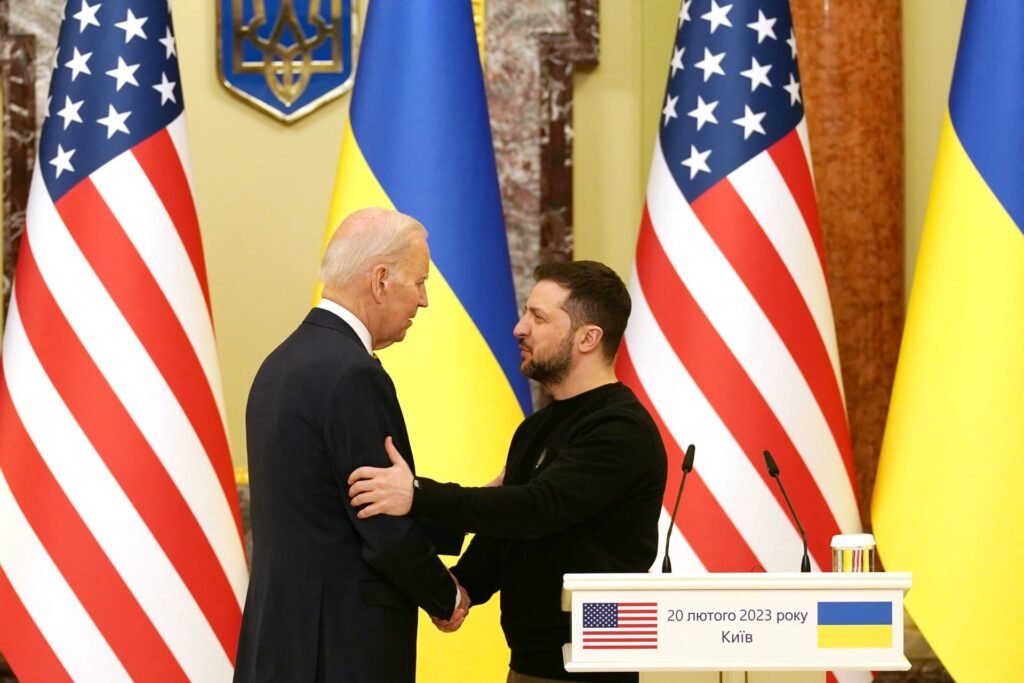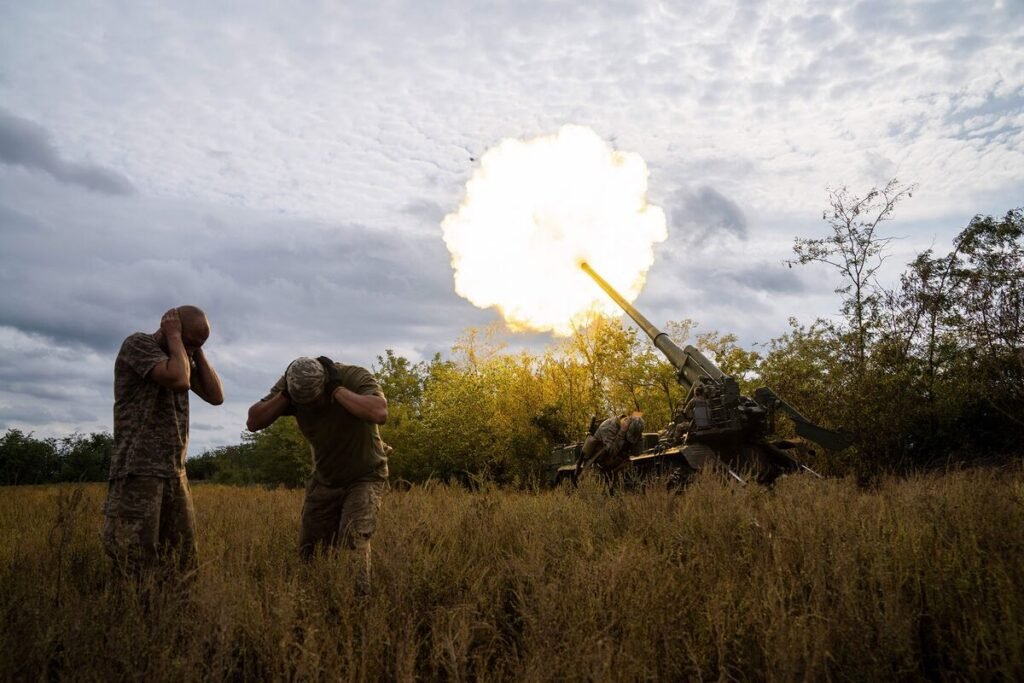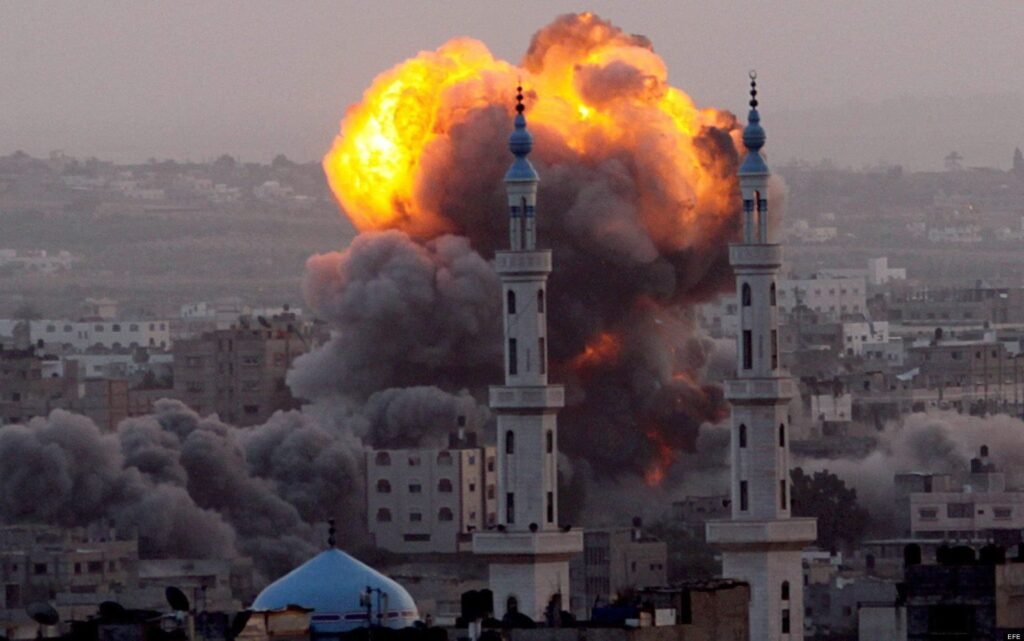The Hypocrisy of Imperialism: A Tale of Two Wars
The world has borne witness to two significant conflicts over the past few years: Russia’s invasion of Ukraine in 2022 and Israel’s ongoing military campaign against Gaza and Lebanon. While both conflicts involve sovereignty, territorial integrity, and humanitarian consequences, the responses from Western powers reveal a glaring hypocrisy. The stark contrast in treatment—between Russia’s military actions and Israel’s invasions—underscores how principles like democracy, self-determination, and international law are selectively applied to serve imperialist agendas.
Ukraine vs. Gaza: The Double Standards of Western Imperialism
When Russian forces entered Ukraine in February 2022, Western leaders united in outrage, condemning Moscow’s actions as a blatant violation of international law. The United States and its allies responded with severe economic sanctions, funneling over $380 billion in aid to Ukraine, including $118 billion in military assistance. President Joe Biden proclaimed that the conflict was a fight for “liberty, democracy, and human dignity,” asserting that “freedom will prevail.”
However, the lofty rhetoric about defending sovereignty and human rights has been conspicuously absent when addressing Israel’s actions in Gaza and Lebanon.

Since October 2023, Israeli airstrikes have killed over 150,000 Palestinians and devastated critical infrastructure in Gaza, while its ground operations in Lebanon have caused more casualties than the entire 2006 Lebanon War. Despite these atrocities, the West has stood firmly behind Israel, providing billions in military aid and diplomatic cover.
Western governments rationalize their support for Israel as a matter of self-defense, ignoring the gross violations of international law involved in its military campaigns. This stark discrepancy in responses reveals the extent to which the principles of sovereignty and human rights are subordinated to geopolitical interests. While Ukraine is portrayed as a bastion of democracy resisting tyranny, Palestinians and Lebanese are left to face overwhelming violence with little international recourse.

Historical Context: Imperialism and the Legacy of Exploitation
The hypocrisy of Western imperialism is not a new phenomenon. From the Balfour Declaration in 1917 to the partition plan of 1947, the groundwork for the current crisis in Palestine was laid by imperial powers seeking to maintain control over the region. Palestinian sovereignty was dismissed as a mere inconvenience, with the creation of Israel justified as a “civilizing mission.” This pattern of exploitation—disguised as benevolent intervention—has defined the imperialist approach to the Middle East for over a century.
In Ukraine, Western involvement follows a similar pattern. Far from defending Ukrainian sovereignty, U.S. policy has consistently prioritized undermining Russia’s influence in the region. The 2014 coup, which installed a pro-Western government in Kyiv, was less about promoting democracy and more about advancing American strategic interests. By pushing Ukraine into a conflict it could not win alone, Washington sought to weaken Moscow while reasserting dominance after setbacks in Syria and Afghanistan.
The Escalation in Lebanon and Iran’s Response
Israel’s invasion of Lebanon marks a dangerous escalation in the Middle East, with implications that extend far beyond the region. Prime Minister Benjamin Netanyahu has openly sought to provoke a broader conflict, dragging the United States and its allies into direct confrontation with Iran. This strategy serves both geopolitical and domestic purposes, allowing Netanyahu to consolidate power amid growing political challenges at home.
Iran, meanwhile, has responded with restraint despite provocations. After Israeli forces bombed embassies and assassinated key figures linked to Hamas and Hezbollah, Iran retaliated with targeted drone strikes and rocket attacks. While these actions caused minimal casualties, they underscore the fragility of the region’s security landscape. Any misstep could ignite a full-scale war, drawing in multiple state and non-state actors with devastating consequences.

The Weaponization of Language: Disguising Imperialist Agendas
Western leaders and media outlets have played a crucial role in shaping public perception of these conflicts, employing euphemisms to obscure the brutality of military campaigns. Israeli ground invasions are described as “limited offensives,” while Russian operations are condemned as “atrocious acts of aggression.” This selective framing reflects a broader trend in imperialist rhetoric, where language is weaponized to justify interventions that serve capitalist interests.
A Call for Revolutionary Change
The contrasting responses to Ukraine and Gaza expose the inherent contradictions of Western imperialism.

The principles of sovereignty and democracy, so often invoked to justify military interventions, are jettisoned the moment they conflict with the interests of global powers. Far from championing human rights, Western imperialism remains the greatest obstacle to the liberation of oppressed peoples worldwide.
The path forward requires dismantling the structures that enable imperialist exploitation and addressing the root causes of conflict. For the people of Palestine, Lebanon, and Ukraine, true liberation lies not in the hands of imperialist powers but in collective struggle against the capitalist systems that perpetuate war, inequality, and oppression. Only through solidarity and revolutionary transformation can humanity achieve lasting peace and justice.

